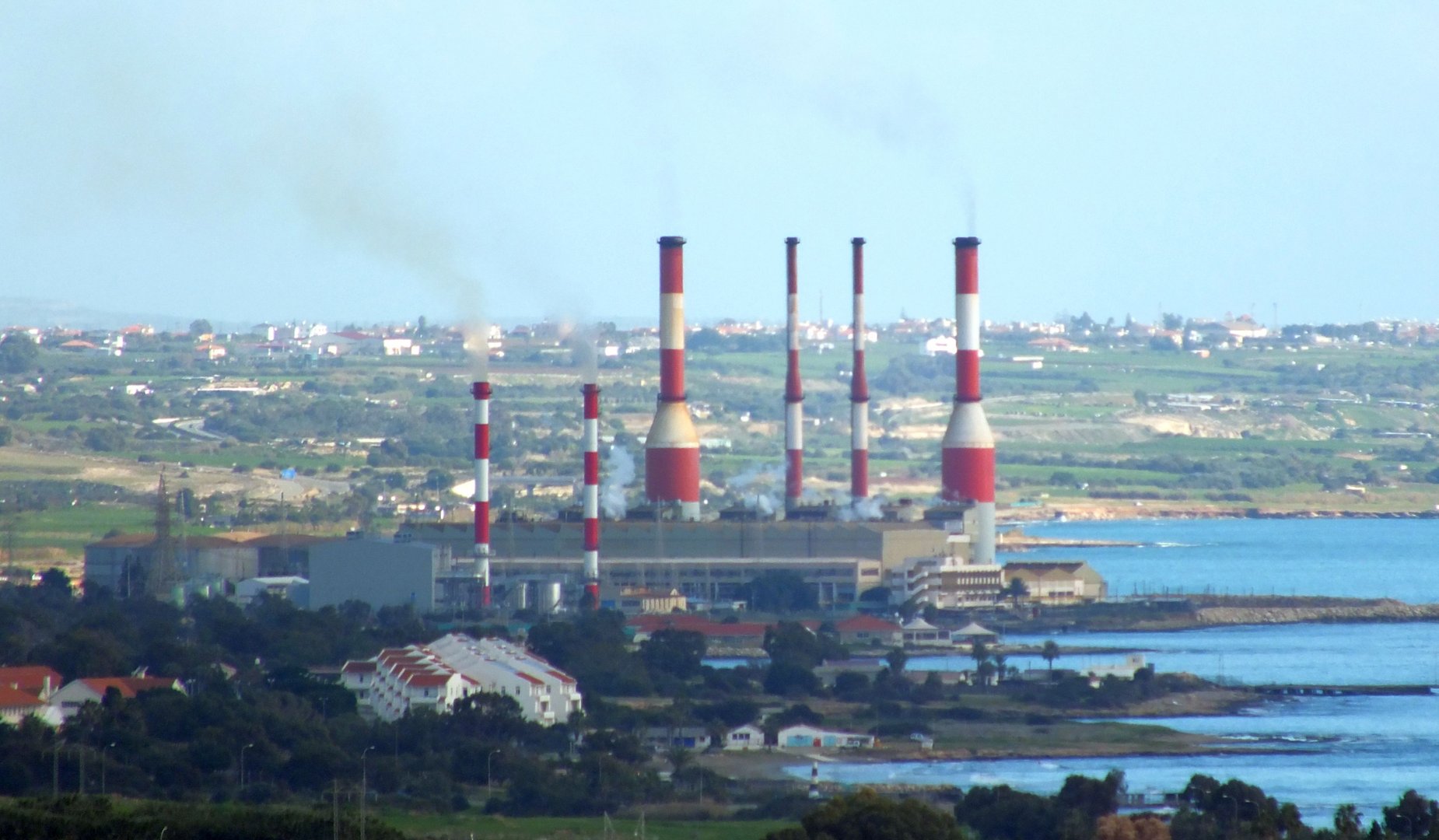Larnaca district residents are set to protest once again over pollutants emanating from the electricity authority’s power plant in Dhekelia, amid concerns over the adequacy of supply on Friday, during what had been described as the coldest nights of the year.
Ormidia community supported by the Green Party will protest at the site of the aging power plant on Sunday, reiterating their longstanding demands for upgrades to be sped up or for the plant to be shut down.
Asked to comment on the protest by residents, EAC chairman Giorgos Pertou told the Cyprus Mail that the right to operate the current units at Dhekelia had been extended until 2029 by the EU. He reiterated that Dhekelia plant was a crucial link in the supply of electricity to the island.
The EAC is looking into replacing the [current] mazut-fuelled units with diesel ones after 2029, he added, which are less polluting.
“We carry out regular measurements and ensure the plants are operating within permitted [health] limits,” Petrou said.
Residents have repeatedly claimed the plant had become hazardous to their health and the environment, including agriculture, which are at risk from the soot spewed by the outdated facility.
The matter had been discussed at the House human rights committee last year, with residents having testified that the quality of life in the area had become “unbearable”.
The EAC and the energy minister, however, had maintained that the unit is a must to ensure adequate supply of power and that it will not be shut down, despite it having exceeded prescribed limits in emissions of nitrogen oxide, sulfur dioxide and dust particles, according to data from the environment department.
Ormidia has the highest rate of deaths from cancer in Cyprus, Antonis Fotis who is organising the protest said.
“[The] old engines of the plant must be upgraded until a decision is made to permanently close the plant. Initially, we were told that the plant would close in 2023. Now they are telling us that it will close in 2029. Even then, however, we have our doubts,” he said.
He added the community is demanding explanations from the government on future plans.
Elsewhere, the transmission system operator (TSO) addressed adequacy of supply, after concerns were raised due to the sudden cold spell and rapid drops in nighttime temperatures.
Speaking to state broadcaster CyBC, TSO spokeswoman Chara Kousapa confirmed reports that supply margins had been narrow.
“Margins are at the limit, given the time of the year, combined with the [scheduled] maintenance usually carried out at this time, which requires units to be shut down,” she said.
“Should we simultaneously experience a fault to any individual major unit this would necessitate cutting off supply to households,” she said.
She clarified that this would only happen during night peak times when there is a sudden surge in demand due to abrupt temperature drops, combined with lack of power from solar installations. The TSO rep added that the cuts would be short-lived and not a matter of hours.
Around 65 per cent of electricity in Cyprus is generated by the Vasiliko power station and 35 per cent by Dhekelia. The power station at Moni has only backup units (four open-cycle gas turbines), mainly for use at times of peak demand and in emergencies.
The fuel used in EAC generation units is mazut at all Dhekelia units and in the steam units at Vasiliko, and diesel in all the gas turbine units at Vasiiko and Moni.
Plans are underway for the EAC to install two kinds of storage units at Dhekelia, one for storage of power from the existing generation units, and separately, for central storage of energy generated by renewable sources, Petrou told the Cyprus Mail.
Both kinds of storage are expected to mitigate the need for power cuts to ensure ongoing supply, including during the inevitable transition to LNG production, which may necessitate the shutting down of units.
It is not yet clarified whether the costs of the storage units may be recouped via EAC customers or from public funds, he said.
As for the idea floated of securing funds amounting to €43 million for replacing the aging generation units in Dhekelia through withdrawal of funds from Etyfa [the natural gas infrastructure company], this was not supported by the new board of directors, EAC spokeswoman Christina Papadopoulou had told the Cyprus Mail earlier.
The EAC is set to stay as a 30 per cent shareholder in Etyfa and thus remain a major player in the transition to electricity supplied from LNG.
Apart from the open cycle gas turbine, all the other generation units at Vasiliko are in the final stage of their upgrade to be ready to operate with LNG when this becomes available on the island, according to the EAC.






Click here to change your cookie preferences